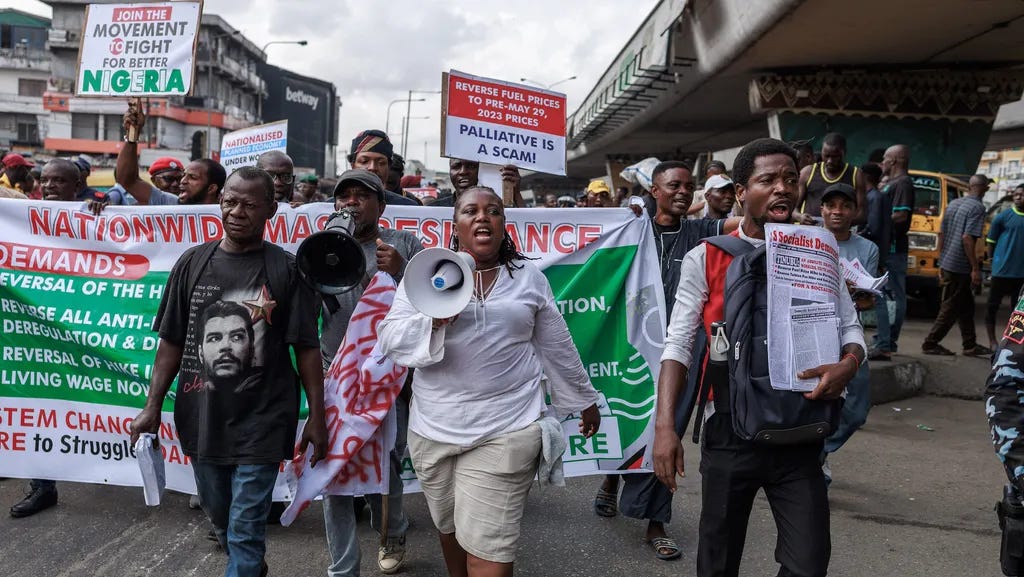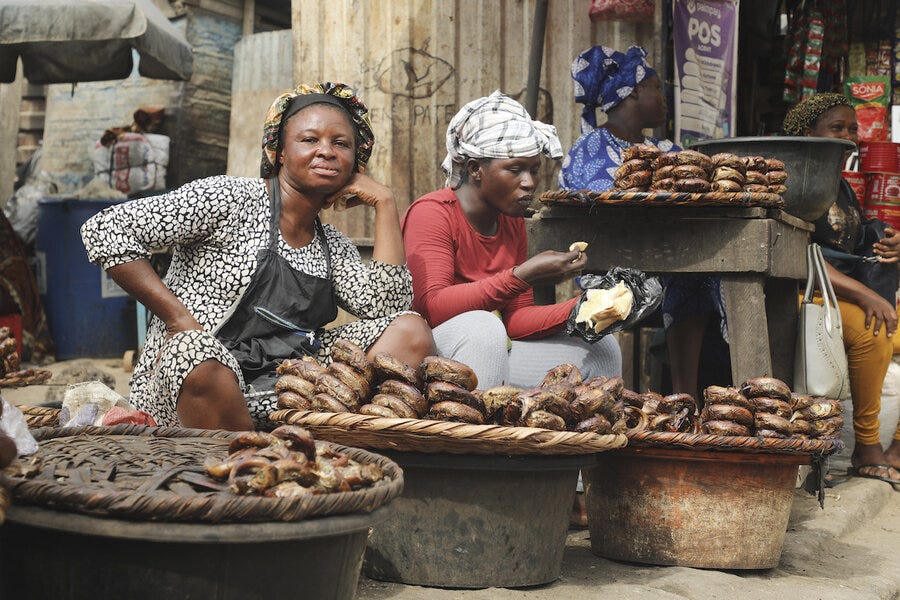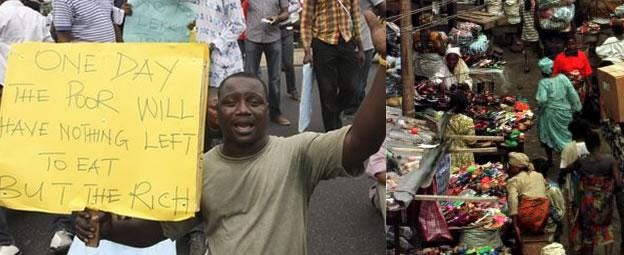Suffering, But Not Smiling Anymore
By Okey Ndibe
The late musical maestro, Fela Anikulapo-Kuti, sang of Nigerians suffering and smiling. That song is both an indictment and an anthem.
On the one hand, it portrays Nigeria as a veritable sheepdom, a space inhabited by oppressed humans who act like sheep. The hordes of crushed humanity retain a certain docility. They are quick to reconcile themselves to their man-made malaise. Where you’d expect them to rebel against the manufacturers of their woes, the oppressed frequently regale their oppressors with praise names. Instead of recognizing that the crises plaguing their lives are caused by human agents, they deafen the skies with heady supplications for relief. It’s a form of willful blindness, a variety of deflection. When they should hold the authors of their perdition to account, they believe it’s up to God to right the deliberate wrongs of humans. Meanwhile, as they wait, they smile.
On the other hand, Fela’s lyrics—whether the dynamo intended it or not—testify to Nigerians’ elastic capacity for endurance. Nigerians are indomitable. They have this ability to stare down unspeakable suffering. They can master the bleakest of circumstances with little or no shaking. The more hardship is piled on them, the more impressive their adaptive stamina.
Well, maybe things are about to change.
From all accounts, Nigerians are suffering as they have never suffered before. But there’s no evidence of that proverbial, confounding smile. Suddenly, suffering is no longer a smiling matter in Fela’s country.

As a matter of context, one must admit that the world is mired in an economic crisis. Thanks to Covid-19 and the attendant lockdowns, many economies—including such juggernauts as the United States, Germany, and China—saw slowed or negative growth. There were widespread supply chain disruptions. Add the wars in the Ukraine, the Middle East, Yemen, the escalation of tensions between NATO and Russia, and uncertainty over Taiwan—and we get a portrait of optimal conditions for global catastrophe.
In the US, where I live, inflation has wreaked havoc. The prices of groceries, other products and services have risen. Even so, Americans complaining about rising prices must know that Nigerians are not their mates! Americans can yap all they want that a dozen eggs cost some fifty cents more than they did three years ago. But when a Nigerian enters the room, abeg, Americans must hush.
A year ago, a bag of rice in Nigeria cost 10,000 naira. By mid-November, Nigerians needed to shell out close to 60,000 naira for the same bag. Today, the price hovers between N75,000 and N85,000, depending on the location.
What’s more, this vertical extension in prices hardly tells the full story. You must factor in other facts to reckon with the dire scale of the situation. One fact: Nigeria’s monthly minimum wage stands at a measly N30,000. Another: millions of Nigeria’s public and private sector workers are paid significantly less than the official minimum wage. Imagine a scenario, then, where a person needs to save the entirety of their four months’ remuneration just to buy one bag of rice! Four months’ pay—with nothing put aside for onions, crayfish, tomatoes, and peppers, not to mention rent, transportation, healthcare, school fees, clothes!
A variant of macabre comedy is developing in Nigeria. Comedians incite nervous laughter from their audiences with jokes about Nigerians missing ex-President Muhammadu Buhari. For context, Buhari was so disastrous that a conventional wisdom emerged among Nigerians: no president could do worse.
Well, it’s as if Bola Ahmed Tinubu shrieked, “Not so fast!” In ten months at the helm, he has outstripped his predecessor in many a metric of social misery. Under his watch, the cost of living has more than quadrupled. There’s an uptick in violent crimes. Far from abating, religious and ethnic conflicts have metastasized in some parts of Nigeria. And they have gained in brutality.
Enterprising social media actors have invented a new sport. They search out folks who, before last year’s elections, had voiced their intention to vote for Tinubu—especially those who unabashedly cited ethnic affiliation as their decisive criterion. In instance after instance, former champions of Tinubu the candidate now bemoan their choice. Their refrain is unmistakable: the man they lauded has become a disaster.

Let’s be fair, though. Tinubu is not a singular villain in this tragic plot. Yes, he poured fuel on the fire of Nigeria’s economic crisis, but his predecessor had created all the conditions for combustion. Buhari harkened to a primitive policy. When his government wasn’t borrowing cash it couldn’t put to gainful use, it was printing naira like it was going out of style.
The result is that the naira—in the words of Okey Anueyiagu, a relative and namesake—took “a huge tumble and a nose-dive that is unprecedented in the history of any monetary instrument.” In a piece he titled, “Naira, Going, Going, Gone…”, the US-trained political economist wrote that the naira “over a protracted period of time has almost become a non-convertible currency. It has assumed the position of an unenviably worthless piece of paper suffering the vicissitudes of its own circumstances and redundant fate.”
The naira has become a weakling, subject to being manhandled by such stalwarts as the dollar and pound sterling. The currency’s misfortunes have compounded Nigeria’s darkening social plane. With foodstuffs out of reach for most Nigerians, it’s no wonder that the suffering have become, for once, ominously smileless. Nothing can be funny to people whose stomachs are devoid of food, filled with mere air.
I fear that a tsunami of unpredictable social magnitude is in the offing.






Okey, haven't you heard the new refrain from the "suffering and smiling" crowd? "suffering and smiling" has been replaced by "No gree". No gree as the pigeon slang suggests means to reject any form of intimidation or bullying from others. The slang is subject to different interpretations thus, it could also mean to be mean and bitchy to others which is what I think it means to me
The economic hardship has turned made animals out of Nigerians. Now it's just survival instinct for them, turning against each other just to survive
Not going to happen Okey. One simple reason; the Ibo’s are expected to lead the uprising and they are not going to, so everybody waits